Garbage that is worth its weight in gold
The participants of the conference, devoted to the new waste management policy, tried to look at garbage not only as a problem, but also as a source of opportunities. The government officials and leaders of international donor structures took the floor at the event.
By Dmytro Synyak 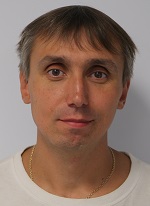
The conference on “New waste management policy – the path to circular economy” is being held in the capital. The participants of the event include the members of the government, deputies of the Verkhovna Rada, representatives of the public, business, international organisations and expert circles, etc. The conference was opened by Ostap Semerak, Minister of Ecology and Natural Resources.
“Irresponsible Soviet policy in this area resulted in thousands of landfills, 99% of which do not meet the European standards and harm the environment,” he said. “Only 3% of solid household waste and only 12% of packaging are recycled in Ukraine. Thus, we must reduce the amount of waste, arrange their collection and recycling, and switch to circular economy, minimising environmental impact. At the same time, we can use the experience of international partners: in the 70's of the last century Japan and Switzerland were literally swamped with garbage. But these countries managed to solve the garbage problem.”
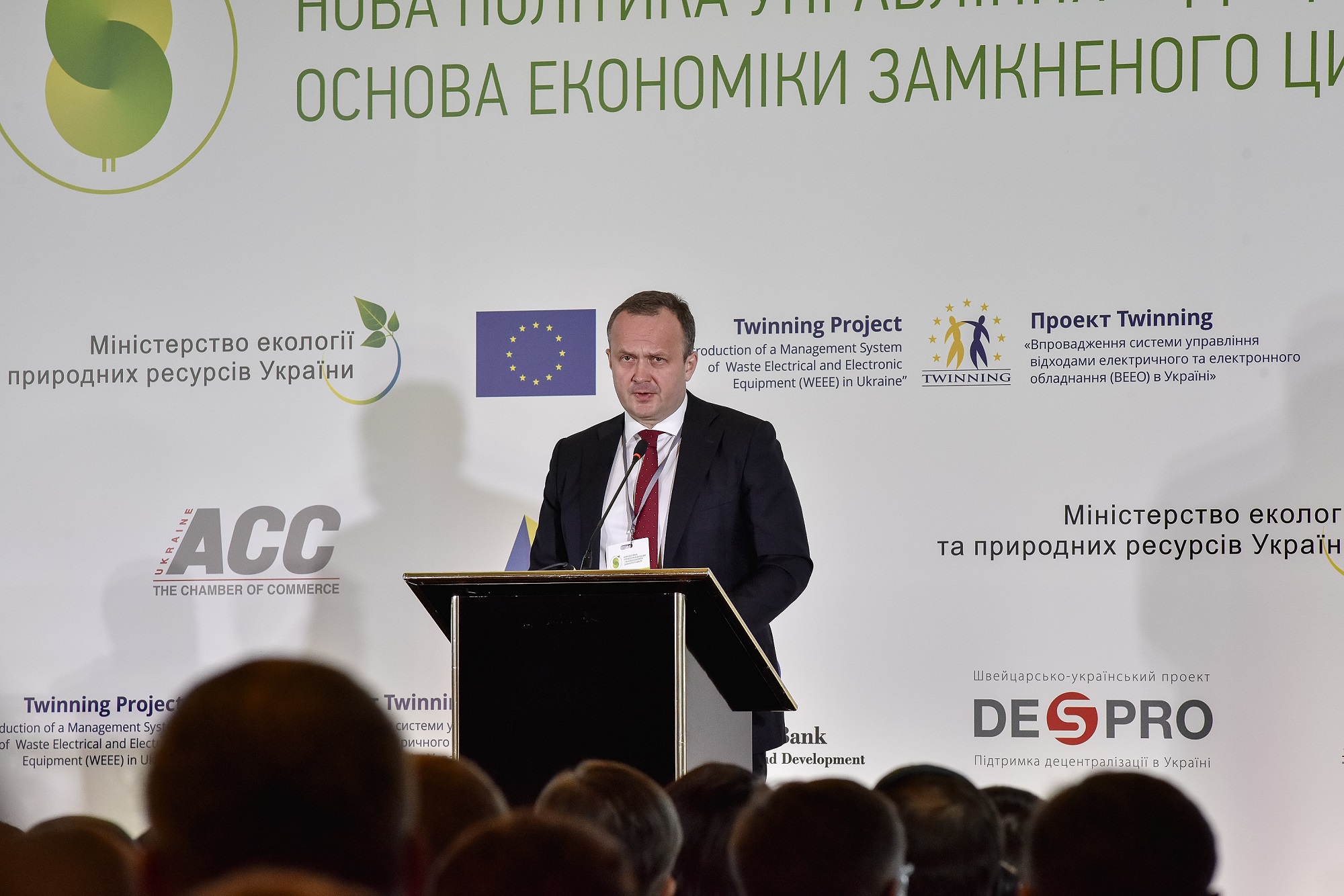
Ostap Semerak emphasised the benefits of the European approach to waste management.
The Minister of Ecology and Natural Resources said that in autumn there should appear a framework law, that is currently being elaborated in various state and non-state structures, as well as 9 sectoral laws.
Hennadii Zubko, Vice Prime Minister – Minister of Regional Development, Construction, Housing and Communal Services of Ukraine, proposed to look at solid household waste management not only as a problem, but as a source of additional opportunities.
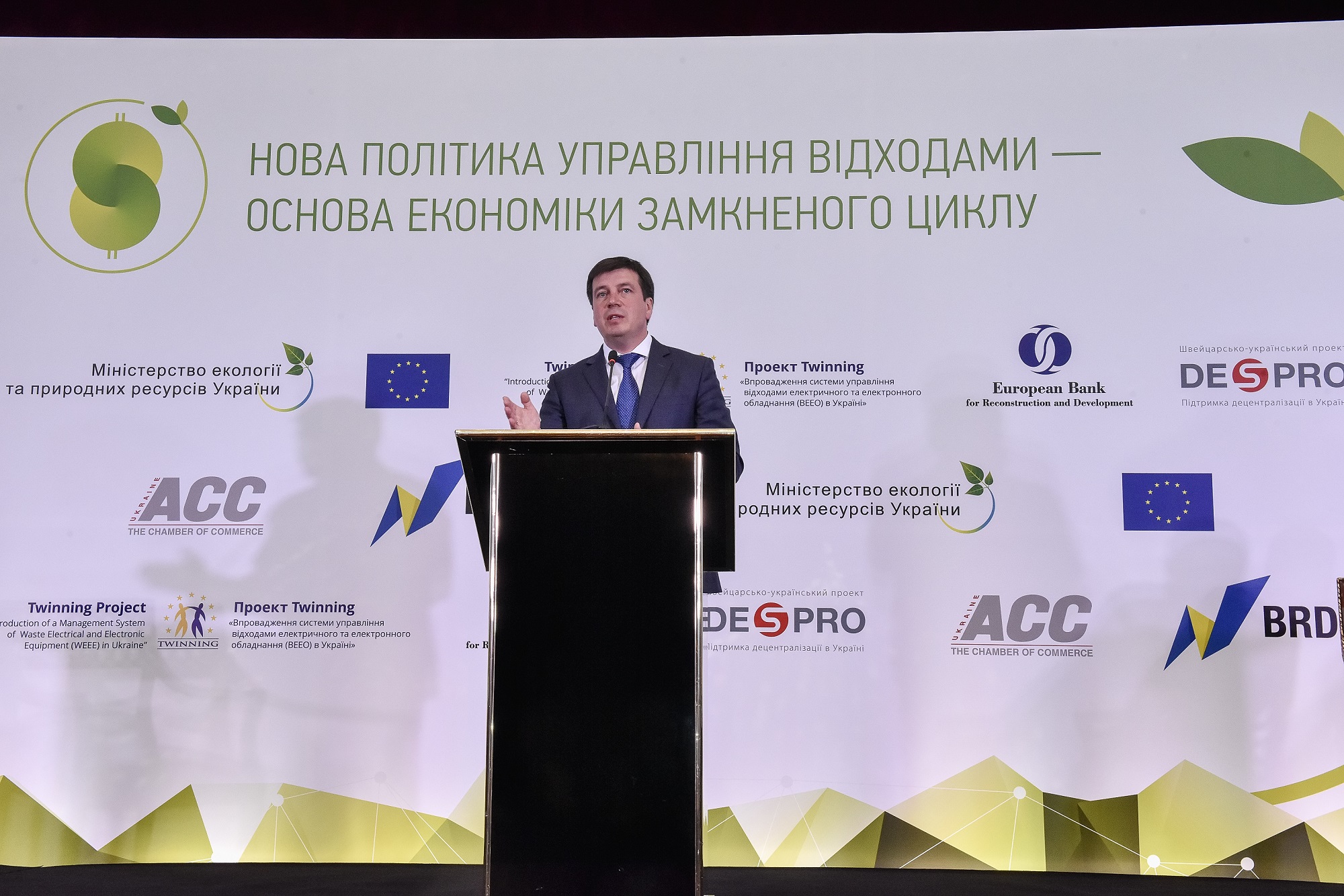
“Garbage is a huge energy resource every hromada has, a resource that can be used for its development,” said Hennadii Zubko. “180 cooperation agreements, 30 of which concern solid household waste management, have been already signed between hromadas in Ukraine. And each year more agreements are concluded.”
“You can’t but agree that waste management issue has never been raised at such a high level as it is now,” said Ivanna Klympush-Tsintsadze, Vice Prime Minister for European and Euro-Atlantic Integration. “In Ukraine, 94% of garbage is moved to landfills, and in Sweden, 99% of garbage is recycled. Sweden even purchases garbage in other countries in order not to reduce the energy production by domestic garbage processing plants.”
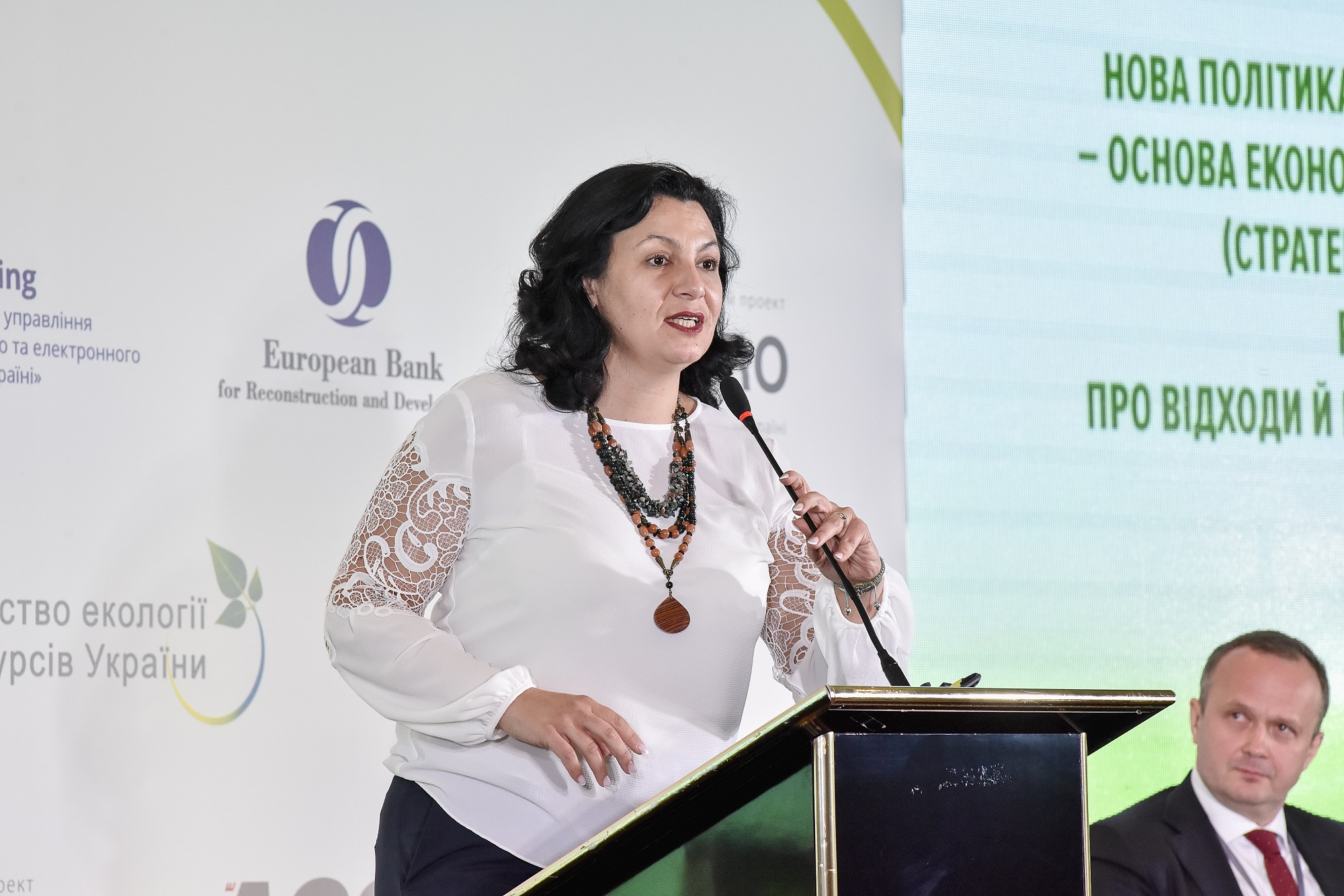
According to Ms. Klympush-Tsintsadze, there are already positive examples of European experience in Ukraine. For example, in Myrhorod, separate collection and recycling of garbage have been introduced, allowing the hromada to earn about UAH 300 thousand per year.
Speeches of the international partners of Ukraine were very precise and therefore particularly interesting. For example, Hugues Mingarelli, Head of the EU Delegation to Ukraine, said that in December 2015 the European Commission adopted a plan of 54 steps covering the entire waste management cycle.
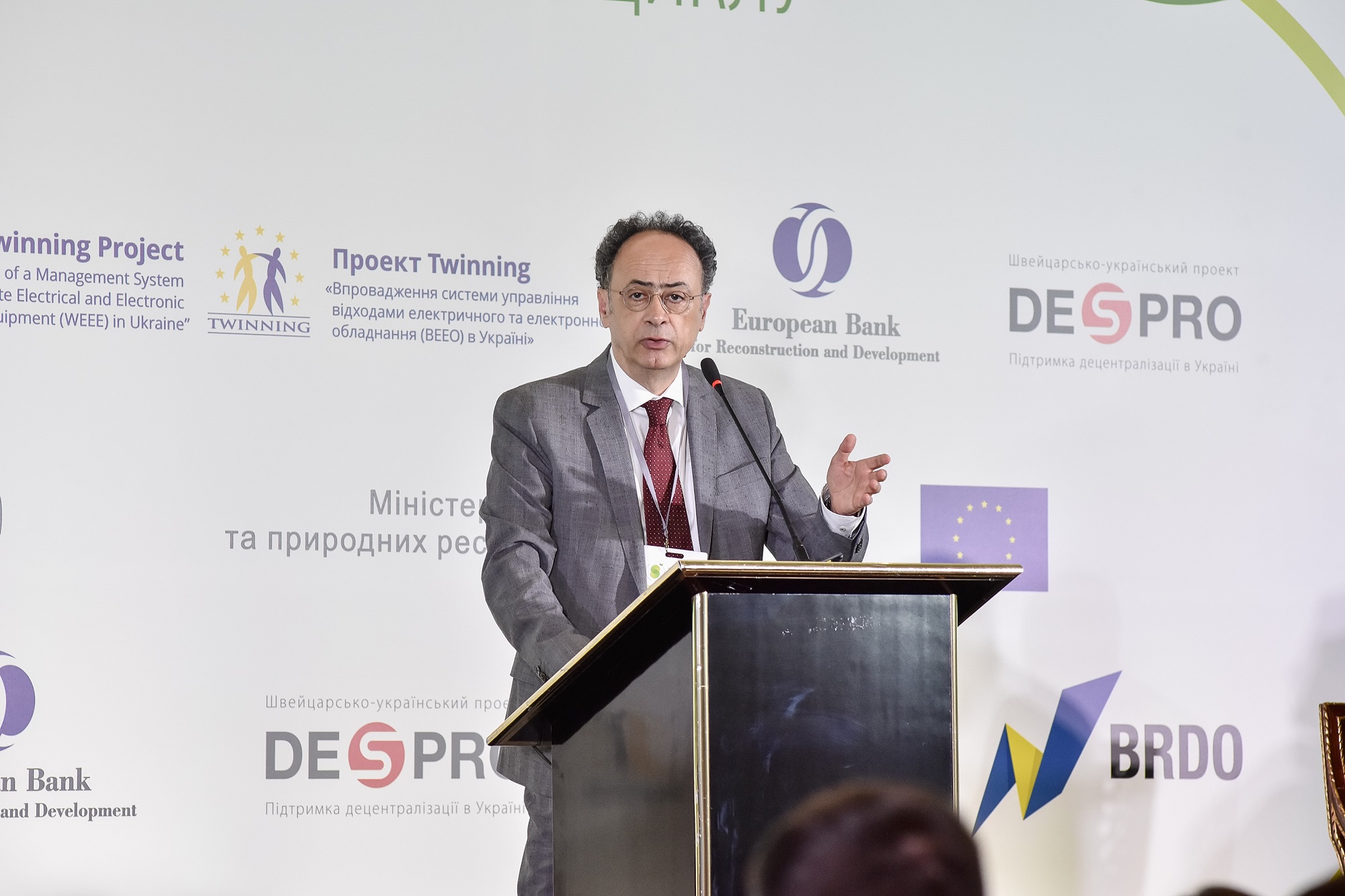
“It is important for the whole society, because due to proper waste management, harmful emissions can be reduced by 4-5%,” said Hugues Mingarelli. “Our experts estimated that through these 54 steps the EU companies will be able to save about EUR 600 billion. This is a huge amount. And we are very pleased that Ukraine has also started moving in this direction. I was extremely surprised when, having arrived in Kyiv two years ago, I did not see even a separate waste collection here. It is not difficult to separate garbage into 3 baskets: kitchen waste, plastic, glass... Some packaging positions should be banned at all, and it can have a positive impact on people’s health.”
Shigeki Sumi, Ambassador of Japan to Ukraine and Moldova, spoke about even more severe measures, taken by the government of his country to overcome the environmental crisis in the 70s of the last century.
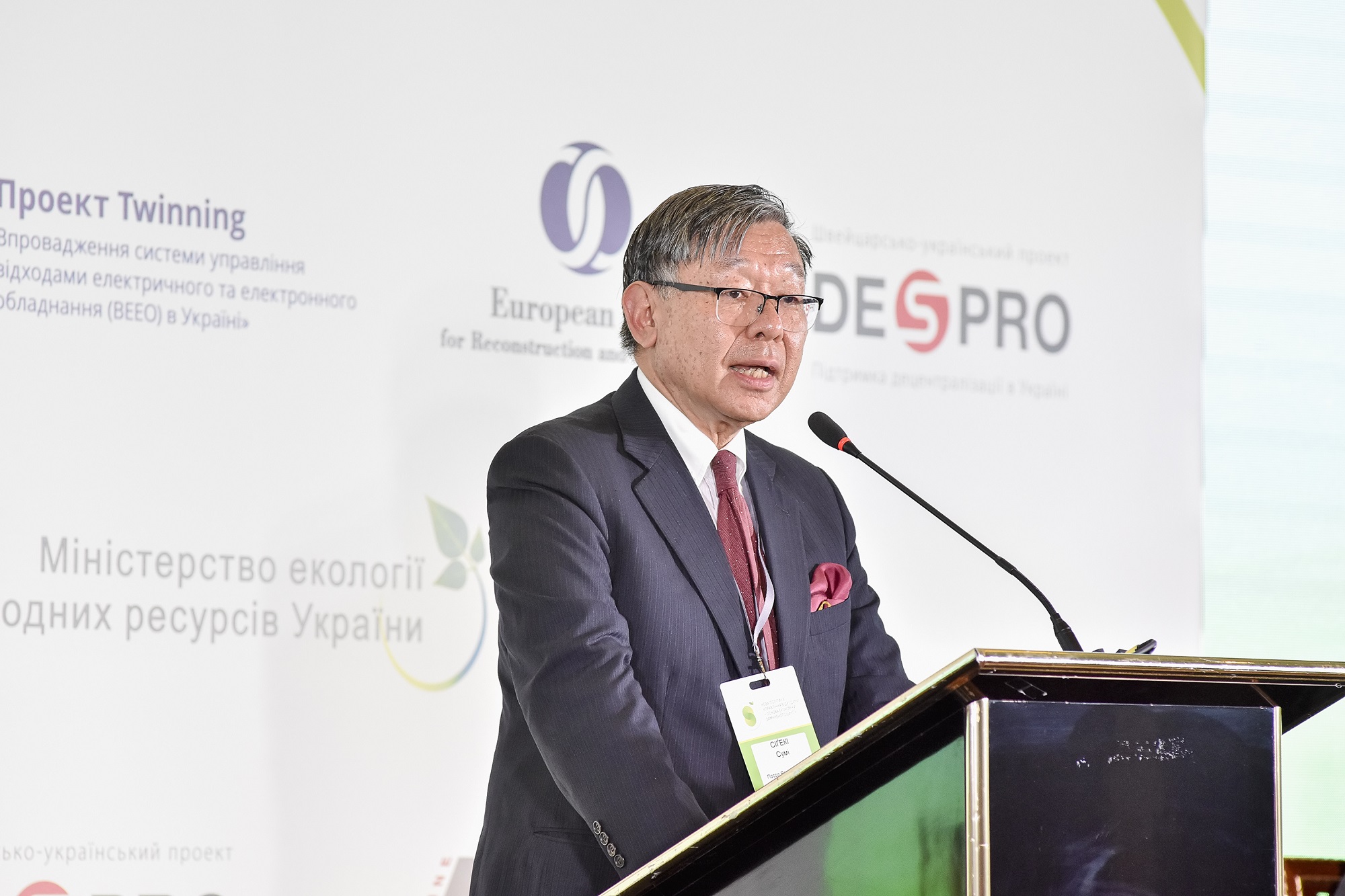
“I remember myself being a child looking in the window at smog, which hung over Tokyo every day,” Shigeki Sumi told. “Since then, the government has done a lot in particular to clean the air. Thus, car engines, designed by the Japanese enterprises, have been discharging much less oxygen dioxide. We call the new principles of waste management a 3R initiative: reduction, reuse and recycling.”
Ivan Rybak, Head of the Subcommittee on State Environmental Monitoring of the Verkhovna Rada Committee on Environmental Policy, Use of Natural Resources and Elimination of Consequences of Chernobyl Disaster, in his speech reminded of amendments to the legislation, adopted in 2012, which came into force only on 1 January this year.
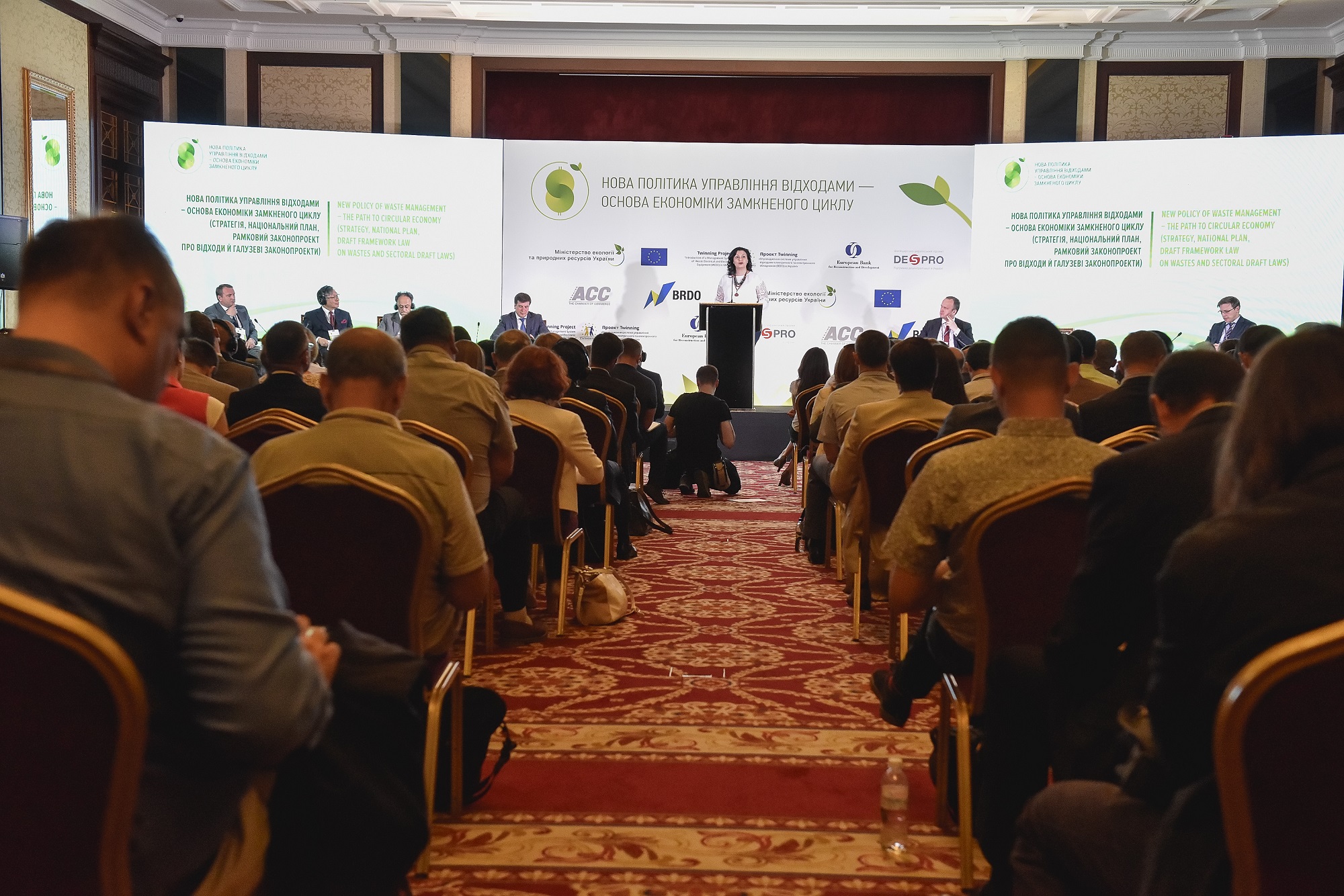
Another interesting issue concerned the potential number of waste recycling plants in Ukraine.
“Everything depends on the dialogue between local authorities and business,” said Hennadii Zubko. “I see a great interest of business in this direction, therefore I urge local self-government to be open to investors.”
“This conference is one of the steps to implement a new waste management policy,” summed up Vyacheslav Sorokovskyi, expert on public services and monitoring of the Swiss-Ukrainian project “Decentralisation Support in Ukraine” (DESPRO), co-organiser of the event, in his commentary to decentralisation.gov.ua.
The full version is available in Ukrainian – please click HERE
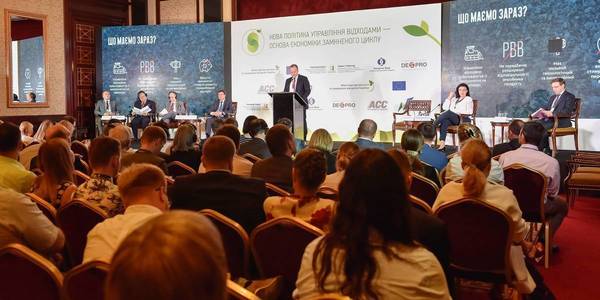
Tags:
Source:
Прес-центр ініціативи «Децентралізація»
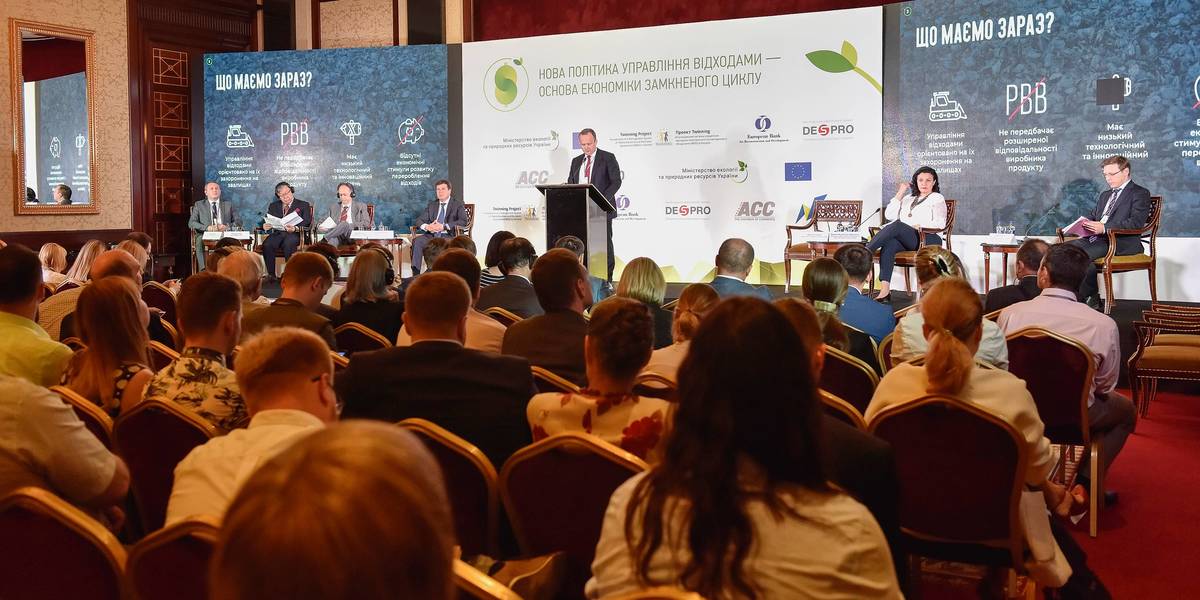
22 November 2024
Окремі питання обмеження доступу до публічної інформації в ОМС в умовах воєнного стану
Окремі питання обмеження доступу до публічної...
Програма USAID DOBRE підготувала відеороз’яснення на тему: «Окремі питання обмеження доступу до публічної інформації...
22 November 2024
Конкурс «Громада на всі 100»: став відомий список фіналістів
Конкурс «Громада на всі 100»: став відомий...
Завершився другий етап конкурсу «Громада на всі 100», під час якого серед 261 громади обрали 40 учасників, що...
22 November 2024
Division of competences between the state and...
18 листопада у Бучі відбувся круглий стіл щодо розподілу повноважень органів місцевого самоврядування та органів...
21 November 2024
Громади Хмельниччини долучилися до обговорення реформи старшої школи
Громади Хмельниччини долучилися до обговорення...
15 листопада в Хмельницькому відбулося громадське обговорення впровадження реформи профільної середньої освіти. Захід...